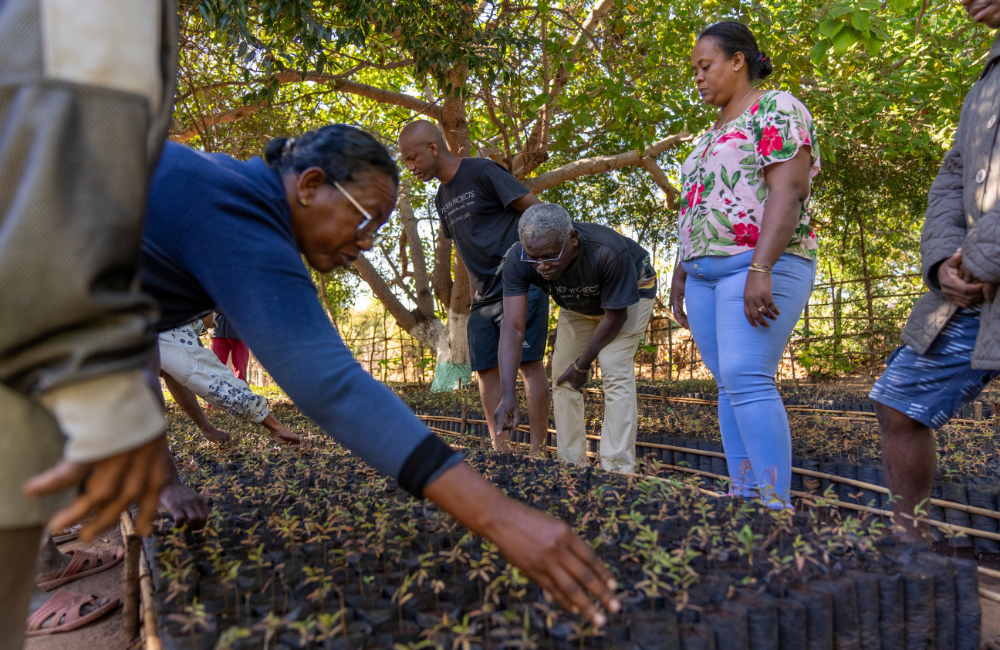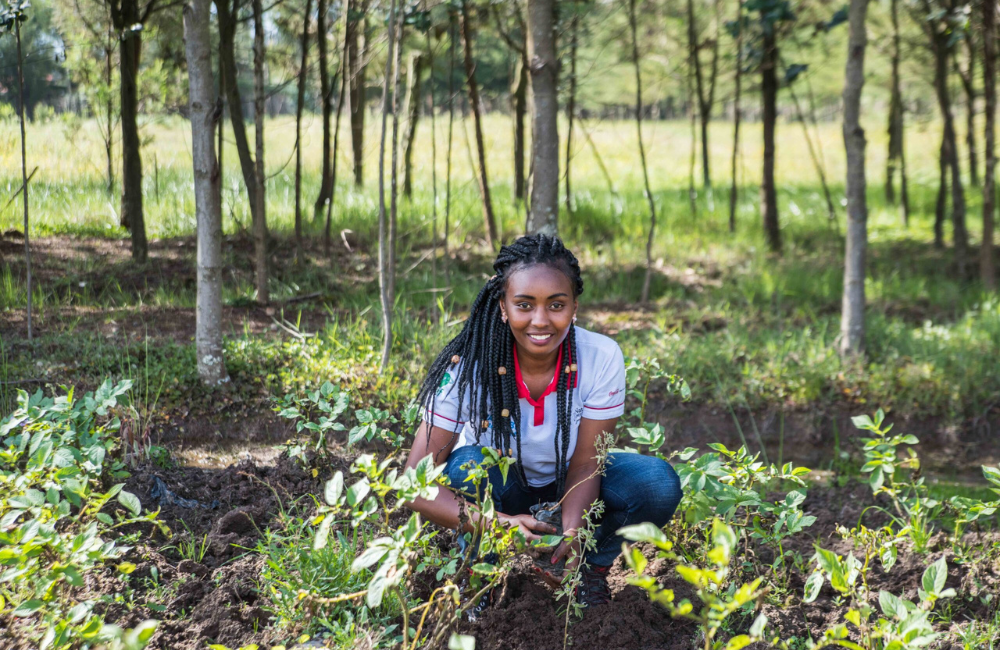28.05.2021
Carbon Accounting and Your Business Footprint
Our approach to business carbon accounting …
)
The voluntary carbon market is enabling companies to take meaningful climate action by offsetting residual emissions and supporting high-impact environmental projects. However, as demand continues to increase, the market is expected to face a supply crunch soon. A recent analysis projected that the demand for carbon credits could outpace supply by
by 2030, which could lead to a massive price increase. In fact, some market forecasts predict prices for high-quality credits could be
by 2035.
is a proactive strategy that enables businesses to secure high-quality carbon credits years ahead of delivery. It’s helping companies lock in today’s carbon credit prices while also shaping nature-based projects from the ground up.
This guide unpacks our most frequently asked questions on FCS. We will explain what future carbon sourcing is, how it works, and how more businesses are using it to combine long-term financial planning with real-world climate impact.
enables your company to secure a future supply of high-quality carbon credits that align with your values and sustainability goals. By locking in pricing today, you hedge against inflation, gain budget certainty, and give your finance team clarity for long-term planning.
Buying from existing projects gives you faster access to verified carbon credits, but offers limited influence over how or where impact is delivered. Investing in new projects, also known as origination, allows you to get involved earlier, shape project outcomes, and secure more favourable pricing.
Origination opens the door to deeper, more personal impact. You could help restore part of the Amazon or bring degraded lands back to life across the world - you will not just offset emissions, but be part of something bigger.
Yes, many businesses take a blended approach, combining spot purchases with future sourcing to strike a balance between immediate needs and long-term planning. This strategy allows you to meet short-term climate goals while securing high-quality credits for the future, providing flexibility, price stability, and continued impact over time.
Minimum purchase quantities for future carbon credits can vary depending on the project. Working with Earthly may give you access to projects that come with higher minimums, unlocking opportunities that aren’t widely available elsewhere.
to explore options that match your goals and scale.

Community members in our Maroalika project tending native seedlings. Nature-based projects like this are ideal for future carbon sourcing due to their long-term impact, scalability, and co-benefits.
Carbon credits can typically be secured several years in advance, often through multi-year offtake agreements that span a decade or more. This long-term approach supports forward planning, locks in pricing, and helps ensure alignment with your net zero roadmap and evolving climate commitments.
Origination means getting involved at the very beginning of a carbon project, often during the design and pre-verification stages, by providing upfront investment to help bring it to life, in exchange for access to the credits created once the project is off the ground. This early involvement gives you greater influence over the project’s direction, from location and methodology to social and environmental co-benefits.
Future carbon sourcing, on the other hand, involves contracting to purchase credits from a project once they are generated, regardless of whether you were involved in its development. It’s a way to secure access to future credits without taking on the same level of early-stage risk or commitment.
Origination gives your company a meaningful role in shaping a project from the ground up, from its design and location to the types of environmental and social co-benefits it delivers. This level of involvement ensures the project aligns closely with your sustainability priorities, brand values, and long-term impact goals.
It’s worth noting that origination often requires a sizable upfront investment, reflecting the deeper influence and commitment it enables.
Carbon credit prices are expected to rise, in some cases by as much as 80%, due to several converging factors. Demand is growing rapidly as more companies commit to net zero targets and look for credible ways to address residual emissions. At the same time, compliance markets are expanding globally, tightening rules and raising the bar on what qualifies as a valid offset.
There’s also a major shift toward higher-integrity, nature-based and removal credits, which typically cost more to produce but offer greater long-term impact and reputational value. This tightening supply/demand dynamic, along with increased regulatory scrutiny and investor expectations, is driving long-term price growth across both voluntary and compliance markets.
With projected carbon credit price increases (some forecasts are suggesting prices could rise by up to 80% by 2035), a key data point would be to project your company’s spend on the spot maket vs fixed-forward pricing. Get in touch with Earthly’s team for an accurate forecast of how much your organisation could save, based on your specific requirements.
Other relevant data includes evolving regulatory trends (such as the EU’s Carbon Border Adjustment Mechanism), as well as the reputational and financial benefits of securing long-term, high-integrity offsets that align with your climate strategy.
Future carbon sourcing supports your net zero journey by securing a reliable supply of verified, high-quality carbon credits aligned with your business’ long-term goals. It complements internal emissions reductions by addressing hard-to-abate residual emissions, and provides a credible, forward-looking pathway to balance your footprint year after year.

Mangrove planting in Ankilahila, Madagascar - early-stage investment in projects like this through future carbon sourcing helps scale impact from the ground up.
We work only with high-integrity projects that include robust safeguards, and insurance is increasingly available to mitigate these risks. For more details,
about how Earthly can help de-risk your nature investments.
No, while large corporations often lead in future sourcing, the market is evolving to support businesses of all sizes. Small and medium-sized enterprises are increasingly participating in future carbon sourcing through flexible contracting options that align with their budgets and net zero strategies.
It’s important to distinguish between
future carbon sourcing
and
origination
. Origination involves providing early-stage, catalytic funding to get a project off the ground, and typically requires a larger, long-term financial commitment. In contrast, future carbon sourcing focuses on securing credits for future delivery and can often be tailored to fit a wider range of company sizes and needs.
Earthly supports a diverse
, including reforestation, mangrove restoration, agroforestry, peatland protection and more - each vetted for impact, co-benefits, and long-term resilience.
You’ll receive clear, regular updates on your project’s progress, including verification milestones, credit issuance timelines, and detailed environmental and social impact data aligned with recognised carbon standards.
Earthly also maintains close relationships with project developers, so if a project isn’t meeting its stated goals, we’ll step in to engage with partners, troubleshoot issues, and keep you informed every step of the way. Our priority is to ensure transparency and accountability throughout the project lifecycle.
Early engagement in future carbon sourcing can unlock long-term cost savings by securing high-quality credits at today’s prices. It also strengthens your brand’s climate leadership, enhances stakeholder trust, and delivers measurable environmental outcomes over time.
Beyond these direct benefits, there’s a strategic imperative: companies supporting future carbon sourcing are better positioned to stay ahead of tightening regulatory expectations and emerging disclosure frameworks. Aligning climate investments with forward-looking policy shifts is becoming essential for long-term resilience and investor confidence.
Future carbon sourcing also creates opportunities to lead beyond your own operations by engaging suppliers, partners, and customers in shared net zero goals. You can build coalitions that scale impact and reinforce your role as a climate leader within your industry.
about how it could apply to your sector.

A member of the Upper Tana project team in Kenya plants a tree sapling as part of a wider effort to restore ecosystems, protect water sources, and uplift local communities. FCS-supported nature-based solutions go hand-in-hand with community empowerment - creating local jobs, building skills, and restoring ecosystems.
At Earthly, every project we support undergoes a rigorous
across three key pillars: carbon, biodiversity, and people. This ensures that the carbon credits you secure are high quality, meaningful and backed by science, data, and long-term impact.
By locking in your future carbon credits today, you secure cost-effective pricing and protect your business from future market volatility. You also demonstrate climate leadership, support world-class nature-based solutions around the globe, and take a meaningful step toward your sustainability goals.
to explore projects that match your goals.
Related articles